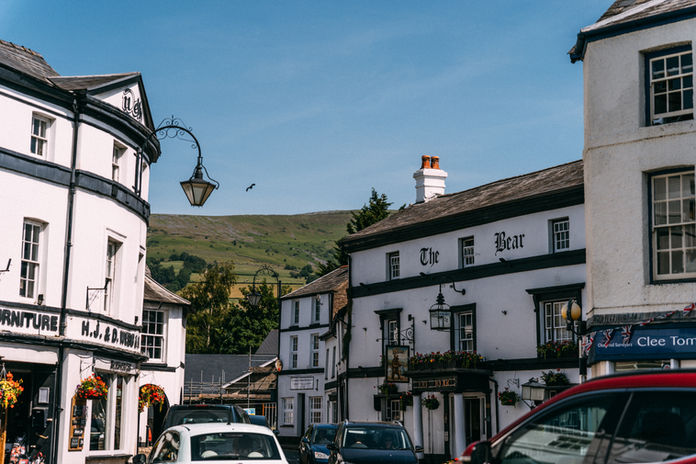It’s small but perfectly formed. Some say that it’s Wales’s most perfect little town. It certainly has the accolades to suggest that this may well be the case. In 2018 Crickhowell’s High Street was crowned overall winner of the Great British High Street Awards on the strength of its thriving network of independent businesses and community-led initiatives.
The Sunday Times chose Crickhowell as the ‘Best Place to Live’ in Wales 2019. More fancifully, perhaps, The Times baptised it as ‘Knightsbridge on Usk’ for its ‘ravishing prettiness’.
Comfy Crickhowell
Hyperbole aside, you get the picture. Everyone seems to fall in love with Crickhowell, visitors and locals alike. It’s undeniably affluent, with its fair share of escapees from city life and well-heeled retirees. But it’s by no means gentrified. This is a desirable place to live and work for a wide, well-rounded populace of long-standing residents, a reflection perhaps of the organic way the town has evolved over the years.
Unlike other towns in Wales (and elsewhere) that have reinvented themselves almost overnight as chic shopping destinations (no names, no pack drill), Crickhowell’s rise to eminence has been gradual and measured – and it feels all the more natural for it.
‘Natural’ and ‘organic’ are apposite descriptions. One of the many jewels in Crickhowell’s shopping basket is the environmentally friendly, award-winning Natural Weigh, Wales’s first zero-waste shop where you bring your own container or basket to stock up on everything from breakfast cereal to compostable sponges.
At your service
The grande dame of Crickhowell’s shopping scene is to be found across the road. Webbs captures the character of Crickhowell perfectly. This emporium began life in the 1930s as a humble paraffin delivery service, building gradually over the years to become a one-of-a-kind department store that attracts customers from far and wide. Family-run and owned, its ethos is quality and personal service. And it sells (almost) everything, from high-end furniture to fertilizer, bags of nails to electrical goods, chain saws to fine china.
It’s on the corner of the street facing another Crickhowell institution. The Bear Hotel, one of Wales’s busiest and best-known coaching inns, has been welcoming travellers for over 500 years. It’s a cosy place of nooks, crannies and wonky, wood-panelled corridors, where shabby chic was the adopted look long before it became fashionable. Guests have been known to queue up to sink into the sofa beside the open log fire.
Back on the street there’s Nicholls, another large ‘country lifestyle’ store with a faithful following for its immaculate displays of fashion and giftware. It’s surrounded by shops selling boutique clothes and books (2020’s ‘Independent Bookshop of the Year’, no less), antiques and artisan delicacies, farm-fresh meat and vegetables, newspapers and craft beer, flowers, art, wine, bread, healing crystals and outdoor gear.
Community spirit
The town’s strong sense of community led to the creation, by the main car park, of CRiC (Crickhowell Resource and Information Centre), a great source of local information, maps and guidebooks. There’s also an excellent art and craft gallery and café (you’re spoilt for choice for places to eat and drink in Crickhowell).
For a break from shopping head to Castle Park. You might catch a cricket match here in summer, played alongside the park in the shadow of the gnarly ruins of Crickhowell Castle, a Norman stronghold dating from the 1270s. Then make your way down Bridge Street, the town’s oldest street lined with charming, pastel-painted 18th-century cottages, to Crickhowell’s ancient bridge over the River Usk and Bullpit Meadow, another attractive green space.
The town’s cosmopolitan character is at its height each summer when The Green Man comes to town (actually, this intimate version of Glastonbury takes place a mile or so away on the Glanusk Estate, but for festival-goers trips to Crickhowell are an essential part of the experience). There’s always something going on in this energetic, spirited community of 2,000 people, which also hosts walking, literary and classical music festivals.
What’s not to like?
























